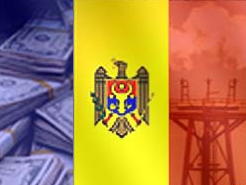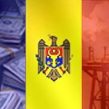
EUROPEAN UNION RESPONDS AS MOLDOVA GAS PREDICAMENT DEEPENS
Publication: Eurasia Daily Monitor Volume: 3 Issue: 7
By:

Breaking its collective silence on the Russia-triggered gas crisis, the European Union has expressed concern over the situation of Moldova, where Gazprom has halted all deliveries since January 1. The EU’s Austrian Presidency, on behalf of the 25 member countries, appealed to Russia and Moldova on January 9 to “urgently recommence negotiations and reach an equitable compromise” (Basapres, January 10).
The wording implies support for Moldova, inasmuch the Russian side has thus far refused to negotiate in good faith and rejected Moldova’s compromise proposals. Gazprom demands the doubling of the price of gas to Moldova from $80 to $160 per 1,000 cubic meters at one stroke. Moldova has proposed a gradual transition, starting with a 30% hike in 2006. Moldova has some counter leverage available in that the country provides transit service for more than 20 billion cubic meters of Russian gas annually to Balkan countries.
The EU’s statement responds to the January 3 joint appeal from Presidents Viktor Yushchenko of Ukraine and Vladimir Voronin of Moldova to the EU to intercede with Russia in support of the Ukrainian-Moldovan position (see EDM, January 4). Voronin initiated, and the senior presidential adviser Mark Tkachuk drafted most of that joint appeal. On January 4, however, Yushchenko’s negotiators signed a supply agreement with Gazprom — a move that the EU could interpret as canceling Kyiv’s appeal to the EU. Thus, the EU now responds with regard to Moldova only.
The response, while fairly bold by the EU’s accustomed standards, nevertheless falls far short of addressing the specific suggestions in the Moldovan-Ukrainian appeal. Those suggestions included: involvement of international [i.e., EU] experts in the two countries’ respective negotiations with Russia and use of EU market methodology for price formation on Russian gas supplies to Ukraine and Moldova. The appeal also urged an all-European approach to the issue of gas supplies “in the spirit of European solidarity.”
Since January 2, Ukraine is supplying Moldova with gas to the tune of 50% of Moldova’s daily requirements. There is no contract and no agreed price on these emergency supplies. Ukraine is Moldova only supply source at present, in unusually harsh winter weather. On January 5, Ukraine’s Fuel and Energy Minister Ivan Plachkov declared that a joint venture of Naftohaz Ukrainy with the RosUkrEnergo company (operator of Russian and Turkmen gas deliveries to Ukraine — see EDM, January 5, 6) — would as of February take over from Gazprom the business of supplying gas to Moldova. However, Gazprom reacted by informing the MoldovaGaz company that the Russia-Ukraine agreement signed on January 4 prohibited such “re-export” of gas from the volumes earmarked for Ukraine (Basapres, January 11).
For now, Ukrainian emergency supplies enable Moldova to negotiate with Gazprom without having to suffer the consequences of the total halt in Russian supplies. However, the January 4 signing of the Russia-Ukraine gas agreement has highlighted Moldova’s extreme vulnerability. By signing, Ukraine abandoned the joint Ukrainian-Moldova negotiating position that called for a 30% increase in the price and joint demarches at the EU. Thus, Moldova ended up isolated and without a contract for supplies. At the same time, the January 4 Russia-Ukraine agreement ensured that Ukraine would have sufficient gas for emergency supplies to Moldova during the latter’s negotiations with Gazprom. Meanwhile, the Ukrainian parliament’s de facto rejection of the gas agreement and no-confidence vote in the government on January 10 seems to maximize the uncertainty and risks for Moldova. Chisinau still has the options of raising the transit charge on Russian gas en route to Balkan countries, and/or diverting gas from the transit pipeline in situations of force majeure. The transit volume is 22 billion cubic meters already agreed for 2006; and the transit charge, unchanged at $2.50 per 1000 cubic meters per 100 kilometers of Moldovan pipeline. Only a very short stretch of the transit pipeline is situated in Moldovan territory, however.
The Kremlin’s decision to double the gas price for Moldova is clearly of a political and punitive nature. The $80 price, in force from 1996 to 2005, was the highest price paid by any CIS country during that period. Moldova is paying its gas bill each year on schedule and 100% in cash. Gazprom owns a controlling stake of 50% plus one share in the MoldovaGaz company, with the Moldovan government holding 34% and Transnistria’s authorities 13%. For more than a decade, Gazprom has supplied Transnistria gratis, and never seriously tried to collect Transnistria’s debts of more than $1 billion. As the Moldovan-Ukrainian joint appeal to the EU noted, “Russia’s economic pressure is aiming to change Moldova’s policy on conflict settlement in Transnistria and on our European choice.”
(Moldpres, Basapres, January 5-10)




